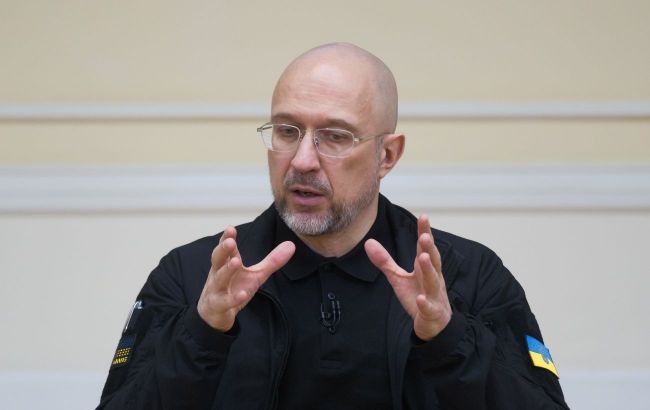Ukrainian PM: Winter strikes cut nearly half of Ukraine’s gas production
 Photo: Denys Shmyhal, Prime Minister of Ukraine (Vitalii Nosach, RBC-Ukraine)
Photo: Denys Shmyhal, Prime Minister of Ukraine (Vitalii Nosach, RBC-Ukraine)
This winter, Ukraine lost nearly 50% of its gas production as a result of massive Russian attacks. The government is now working on ways to compensate for the losses, including through imports, said Prime Minister Denys Shmyhal during a government meeting.
"This winter, the enemy launched a series of large-scale attacks on Ukraine’s gas production infrastructure, resulting in losses of nearly 50% of total output. Despite this, the sector endured and continues to supply consumers with natural gas. We are now actively working to compensate for the losses, particularly through imports," Shmyhal stated.
Preparation for the next heating season
According to Shmyhal, Ukraine has signed an agreement with the European Bank for Reconstruction and Development (EBRD) to attract €270 million ($307 million), including a €140 million ($159 million) grant from Norway. The funds will be used to purchase about 1 billion cubic meters of gas.
He added that Ukraine has already contracted 1.5 billion cubic meters of gas for early 2025. An additional 300 million cubic meters of liquefied natural gas will be purchased from the Polish company Orlen.
"Today, we are also adopting an important decision to accelerate domestic gas production. For private oil and gas companies, we simplify the procedures for arranging energy storage facilities as much as possible, as well as for constructing the facilities necessary for connection to the Ukrainian gas transportation system," the Prime Minister noted.
As previously reported by RBC-Ukraine, due to declining output caused by enemy strikes, Ukraine will use the $410 million loan to purchase 1 billion cubic meters of gas.
Meanwhile, according to estimates from the National Bank of Ukraine (NBU), gas imports are expected to rise in 2025 and reach $2.9 billion.

